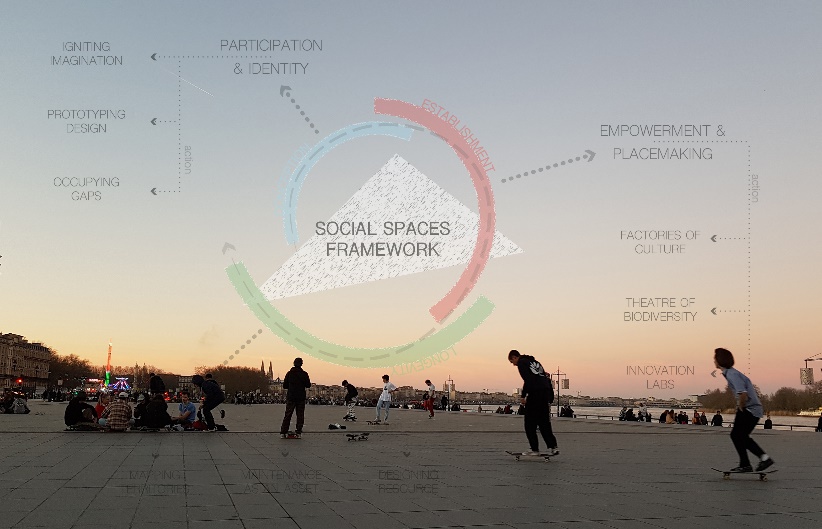Samuel Cortis graduated from the Master of Landscape Architecture course in 2018, during which he won the Mark Turnbull Award for his research project, ‘Making room for social spaces; how can community and collectively focused landscapes shape development strategies for Scotland?’. Here, Sam discusses his time on the course, and shares his advice for future students of Landscape Architecture.
The city of Manchester was a key factor in my decision to study Landscape Architecture at the MSA. It is an exciting and dynamic city which is in the process of redefining itself from the birth site of the industrial revolution into a liberal, multicultural and creative powerhouse of northern England. The course is always drawing its students to the local geography; in my first year we studied the River Irwell drainage basin and in my second year we explored the idea of peripheries, so through my studies I became acquainted with large areas of Greater Manchester. This tangible approach to teaching within an interesting city made the course particularly appealing to me.
Prior to my studies, I completed internships with the practice Here + Now based in Edinburgh, working on their Public Life Street Assessments for five districts of Edinburgh. These studies involved on-the-ground observation and interview methodologies which impressed upon me the deeply human aspects of Landscape Architecture. Engaging with local communities and space-users was the catalyst for my interest within the role of community in Landscape Architecture and ultimately the inspiration for my Mark Turnbull research project proposal. This initial interest has been nurtured and developed through my time at the MSA and subsequent professional experience with LUC.
Sam discusses the influences and objectives of his Mark Turnbull research project with LI Scotland (Courtesy LI Scotland)
The course is rooted within the local geography of the Manchester area and this is driven by the tutors who add many practical elements to the course. Sites visits included going to a local quarry, nursery and a variety of nature reserves. Landscape Architect students are lucky in that we can learn by observing the natural and built world around us and noticing the details. The tutors promoted this style of learning and it grounded our theoretical knowledge in ‘real world’ situations. The highlight of each year was the annual study trip where we visited a European city to explore Landscape Architecture from a new perspective which was organised by the tutors.
The MLA course at the Manchester School of Architecture is outward looking and is well connected to the professional practices. Each term, the course organises a series of lectures which are delivered by experts and professionals from a variety of backgrounds. During my studies I attended a brilliant lecture on designing for play by LUC, who were to be my future employer. As well as being interesting they are good opportunities for networking and for gaining an insight into the professional world.
During the second year of the course each student is assigned a professional practice as a mentor. This means that several times a term you have the opportunity to discuss your project ideas with professional Landscape Architects. As well as helping you to develop your designs it is brilliant to be able to visit a local office and get a feel for how they work.
Landscape Architecture is a highly rewarding and diverse profession which allows you to take stock of the landscapes around you and to bring more value to them. If you are a curious and creative person who is interested in the natural world and design then I would recommend this course.
The breadth of the field also means that there are many niches to be explored. On a personal level, my interests led me towards the potential of community-led landscapes and how they can shape development strategies for urban areas which I was able to explore through the Mark Turnbull Award. This interest came from the desire to make our cities more inclusive and engaging.
Manchester is a fascinating and dynamic city in the process of writing the next chapter of its history. It is a brilliant place to study Landscape Architecture and is also a hub for practices so there are many employment opportunities once you have graduated!
More information on Samuel’s practice can be found on his website www.samuelcortis.com


